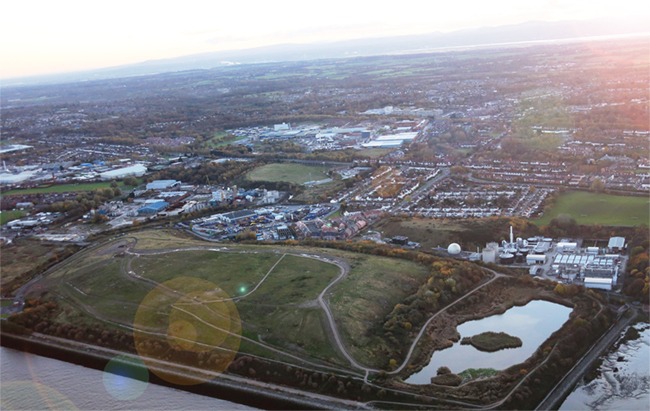
A 78 acre community park and wildlife haven created from a landfill site and managed by an autism charity has won a throng of awards and accolades as it approaches its second birthday.

Its warden, Anne Litherland, was recognised as Park Ranger of the Year in the Land Trust Awards, beating 50 other rangers from across the country to the title.
A 78 acre community park and wildlife haven created from a landfill site and managed by an autism charity has won a throng of awards and accolades as it approaches its second birthday.
Port Sunlight River Park in the Wirral, opened to the public in August 2014, was transformed into a community space offering walkways, wildlife havens and stunning views of Liverpool’s iconic skyline by national land management charity the Land Trust. Its upkeep, community engagement programmes and conservation are managed by North West charity Autism Together.
The park’s remarkable history and current day achievements as a community space have been heralded in both regional and national award schemes:
- The park has won the Green Enterprise category of Wirral Third Sector business awards.
- Its warden, Anne Litherland, was recognised as Park Ranger of the Year in the Land Trust Awards, beating 50 other rangers from across the country to the title.
- The park was Highly Commended in the North West Regeneration category of the Royal Institution of Chartered Surveyors Awards 2016. The judges had been looking for ‘exceptional improvements to urban, rural or coastal areas’.
- It reached the finals of the Liverpool Echo Environment Awards, in the Neighbourhood Improvement Project category.
Autism Together supports more than 400 people with autism across Merseyside and under its guidance the park is becoming a space where service users of the charity but also local people on the autistic spectrum and families touched by autism can feel welcome and safe.
Anne Litherland said, “People know our charity is involved, so they are more likely to come here as they know they’ll be accepted and can volunteer or take part in our community activities. They’re able to mix with other community members and take part, alongside them, in important conservation work such as bird and bat surveys. We’ve logged over 100 species of birds on the site and are carefully monitoring our population of Noctule bats, which are a priority species for protection.”
“We bring groups of our service users here every day and many of them are so relaxed in this tranquil environment that they are very open to learning new skills.”
The park has also become a focal point for the community at large and is used by local dog walkers, cyclists, joggers and bird watchers. Up to 500 people visit the park daily and it is regularly visited by five running groups and eight cycling groups.
In a recent survey commissioned by the Land Trust, 80 per cent of people surveyed said the park played a positive part in their health and wellbeing; 95 per cent said it helped make the local area a better, more desirable place; 78 per cent said it had brought the community together.
